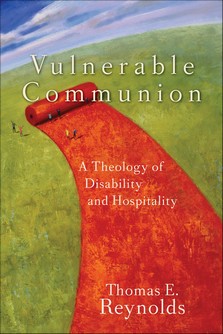
Currently I am taking a rather fascinating class delving into the topic of God and Suffering, called “The Theology of Suffering.” For my final project, I am taking on a specific topic under that category–Disability.
I’m endeavoring to uncover questions like, “Why does God allow children, and adults, to suffer with disabilities?” “Is disability part of God’s plan, or part of what’s broken and wrong in the world?” “What place do the “disabled” have in “God’s Story”?” “How can care-givers of those with disabilities view this type of suffering in light of what God has done, what he is doing, and what he will do?” And some other questions.
In 2001, when my son started to struggle with a rather severe case of regressive autism, I wondered not just what was going on with him, but why? What was the point? I have to say, it all seemed like a mistake. My faith was shaken; not because I thought I should be able to have the child of my dreams, (this was a sad part of it too,) but because seeing my child suffer so badly made me question what God was really like. After a period of grieving, I had to find out more.

Our son went from meeting all his developmental milestones ahead of time (rolling over, sitting, walking, talking), to not even answering to his own name for days on end, not reacting to pain in any normal way, not speaking to us, and not even calling us “Mommy” and “Daddy” any longer. I didn’t know where to turn, on many levels, and I wondered why God would want to kill me by breaking my heart, day-by-day, as my son sank into frustration, fear, pain, and despair. At times I felt hopeless.
We don’t live near family, and I’d like to say our church, and other Christians, were helpful, but almost no one reached out in any way that was truly or consistently supportive, or meaningful. Experiencing disability and struggle has a way of isolating us, and creating more hopelessness to wade through.
Instead, the opposite can be true. The disabled have much to teach us about hospitality, a characteristic of God, both individually and as a community.
The primary text I’m reading for my research is Vulnerable Communion: A Theology of Disability and Hospitality by Thomas E. Reynolds. What an interesting book!

Here are a few nuggets I’ve gathered:
• The “disabled” are a picture of human weakness and vulnerability, from which we can learn about the human condition, and God himself. They teach us about the goal of Reliance, versus our misguided and typical goal of “independence.”
• These people are at the center of God’s love, and made in God’s image, they display attributes of God. They help us to see the true nature of God–One who made himself weaker and vulnerable, and still is vulnerable to us. (This vulnerability is epitomized in the historical event, and saving action of Christ’s sacrifice on the Cross at Calvary.)
• The “disabled” give us the opportunity to learn, practice, and experience hospitality, and “do for God” (Matt: 25:40 “And the King will say, ‘I tell you the truth, when you did it to one of the least of these my brothers and sisters, you were doing it to me!”)
This is a topic close to my heart. Uncovering more about it has helped me to not just understand my son, and his struggles better, but to understand God, his character, and his intentions.
Now I’m wondering, “Is it time to write a book on this?”
Please leave your thoughts on this topic, or comment in any way.
May God bless your heart,
Lisa

